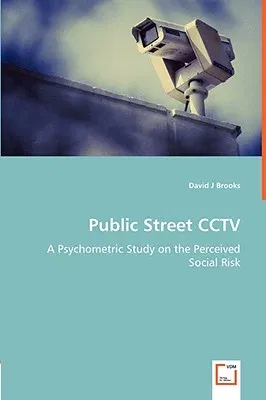David J Brooks
(Author)Public Street CCTV - A Psychometric Study on the Perceived Social RiskPaperback, 29 July 2008

Qty
1
Turbo
Ships in 2 - 3 days
In Stock
Free Delivery
Cash on Delivery
15 Days
Free Returns
Secure Checkout
Print Length
156 pages
Language
English
Publisher
VDM Verlag Dr. Mueller E.K.
Date Published
29 Jul 2008
ISBN-10
3639058631
ISBN-13
9783639058635
Description
Product Details
Author:
Book Format:
Paperback
Country of Origin:
US
Date Published:
29 July 2008
Dimensions:
22.86 x
15.24 x
0.84 cm
ISBN-10:
3639058631
ISBN-13:
9783639058635
Language:
English
Location:
Saarbrucken
Pages:
156
Publisher:
Weight:
217.72 gm

